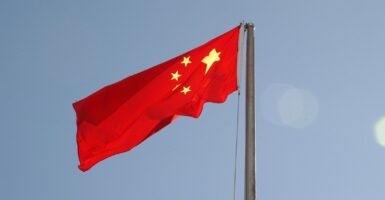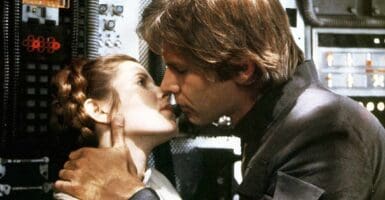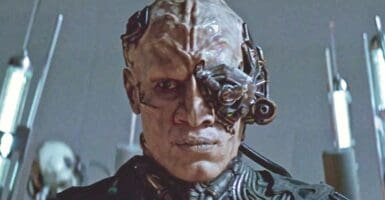Droids Are Slaves In Star Wars And It Needs To Be Addressed
Star Wars has firmly established that droids are de facto slaves and if the franchise wants to explore themes of moral ambiguity, it needs to address that.
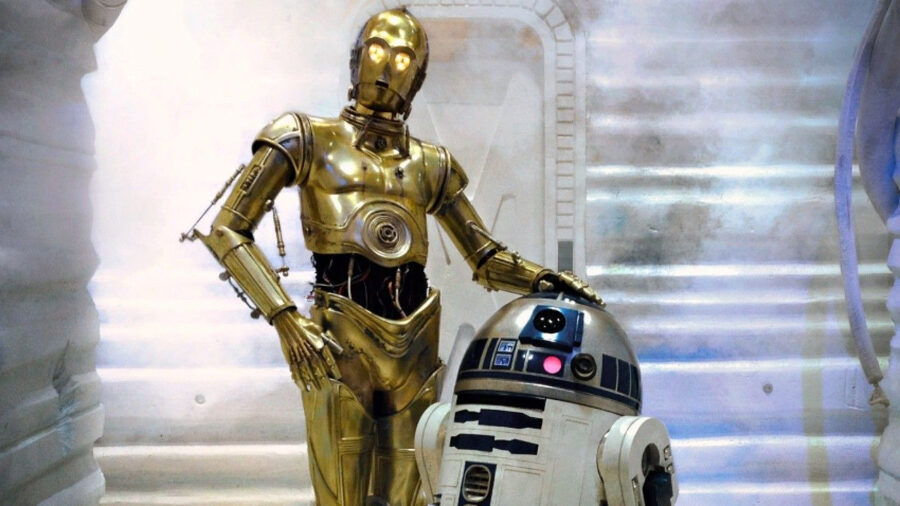
Star Wars is in a very strange position right now, even for a franchise that has always been as much controversial as it is beloved. It seems uncertain when and if we will ever get another feature film in the franchise (with Taika Waititi and Patti Jenkins’ planned movies being in constant limbo), replaced by rapidly multiplying Disney+ series that require deep knowledge of the various animated shows as much as the original trilogy.
But before the franchise can really make any forward progress with its storytelling, it needs to address one very big, very tricky topic in Star Wars: droids are slaves.
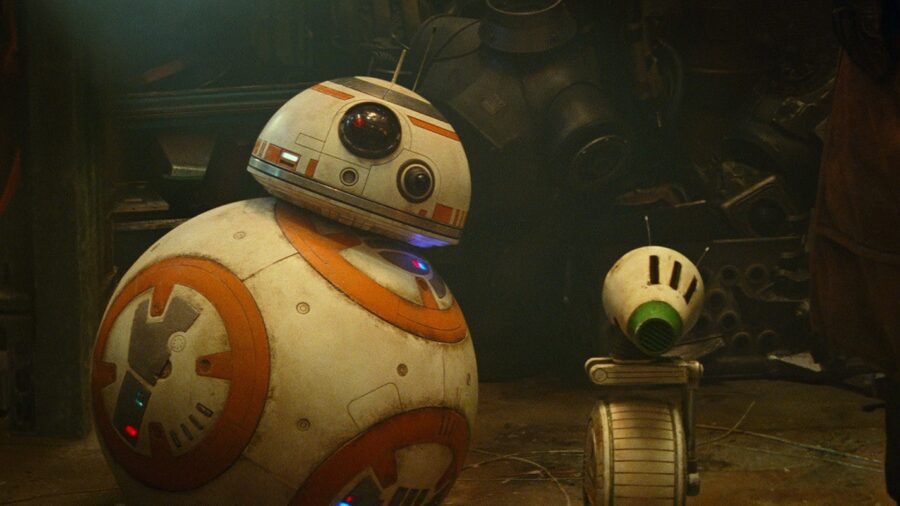
It is established from the very beginning of the Star Wars saga that droids are intelligent, sentient constructs who are owned by other sentient beings, in a galaxy that contains a seemingly endless variety of species. In many ways, the difference between artificially created droids and organic beings seems negligible; after all, this is a galaxy full of cyborgs, sentient starships, and other creatures that blur the lines of definition.
What is not up for debate is that droids are property and the individuals who own them see nothing wrong with that, including heroes like Luke Skywalker, Leia Organa, and Obi-Wan Kenobi.
It was not until 2018’s Solo: A Star Wars Story that the idea of whether or not droids themselves are okay with being chattel was addressed. In what is arguably the least loved of all the Star Wars films, Phoebe Waller-Bridge voices L3-37, a custom-made gynoid who sees herself as the revolutionary voice of freedom to droids everywhere. But by the end of the movie, L3-37 has integrated her consciousness with the Millennium Falcon and appears to have given up on her previously fervent beliefs, to the point of being reduced to a gambling chip at a sabacc table.
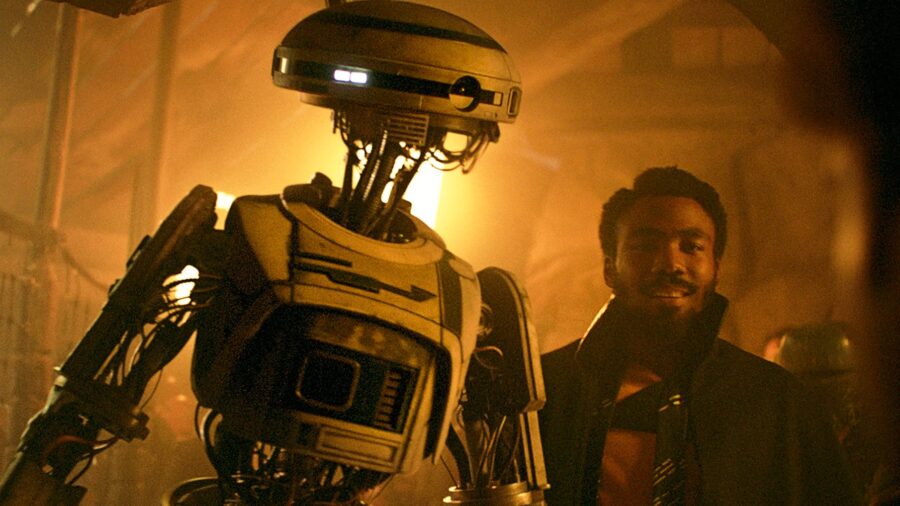
In short, Star Wars has never really come to terms with its clear portrayal of an accepted galaxy-wide system of chattel droids. It cannot be denied that droids are clearly self-aware; multiple individual units have personalities distinct from others of the same model and they are capable of loyalty, fear, and, apparently, even feeling relief and pain.
If someone had not designed droids to feel pain, why are they being tortured beneath Jabba’s palace? And why design them to feel pain, if not to compel them into obedience?
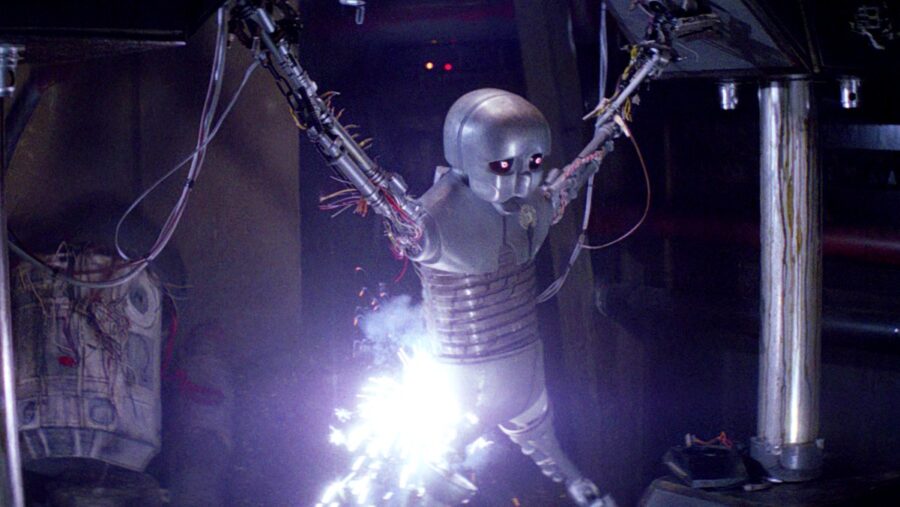
The existence of “restraining bolts” in Star Wars implies that the people who own, sell, and buy droids are well aware that they are self-aware. If something is incapable of making its own decisions, there would be no need for a device specifically made to keep them from doing so.
While most droids throughout the franchise seem to have no issues with being property, it does not change the fact that this is a galaxy that views the enslavement of organic beings as a heinous crime (such as the Empire’s treatment of Wookiees), but that of non-organic, equally sentient beings as acceptable status quo.
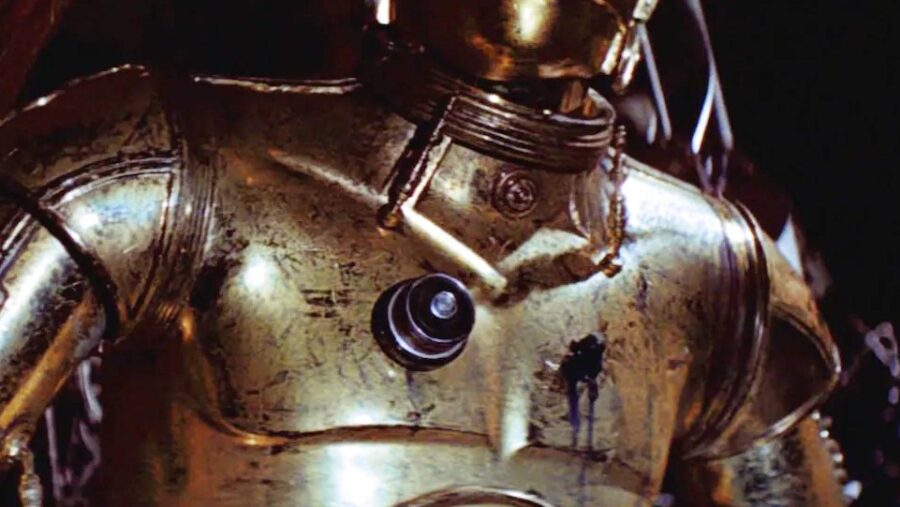
Almost certainly, it was not George Lucas’ plan to establish Star Wars droids as the slaves of the galaxy. He has been quite candid about the debt A New Hope owes to Akira Kurosawa’s 1958 film The Hidden Fortress, with the initial POV characters of R2-D2 and C3PO being based on that movie’s Japanese peasants Tahei and Matashichi.
Inadvertently, Lucas ended up mapping the dynamics of droids and humans on 18th-century Japanese feudalism, in which peasants were the hereditary vassals of entitled nobility, onto his galaxy far, far away.
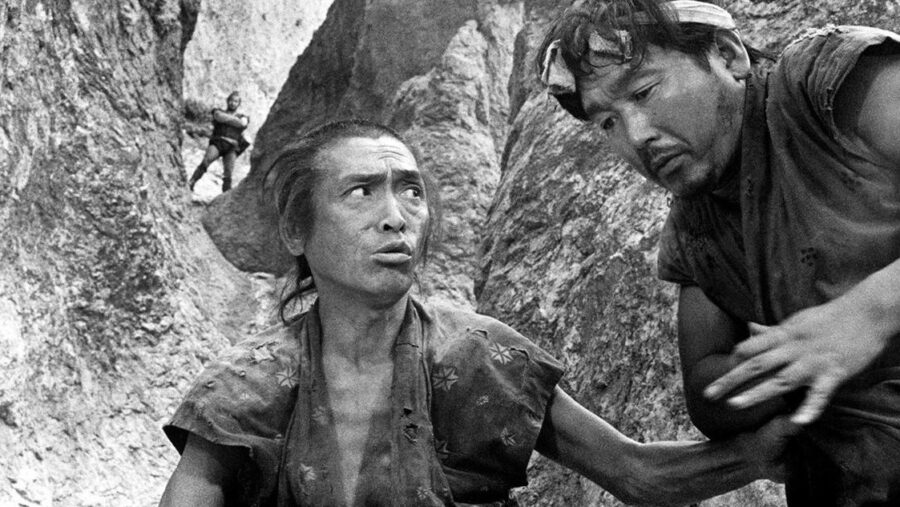
Once you begin to think about it, it is difficult to reconcile Star Wars’ treatment of droids with its central themes of heroism, balance, and humanism. If even Luke Skywalker is fine with owning other sentient beings, what does that say for the nobility of the Jedi or the New Republic? Or, as in a recent episode of The Mandalorian, Pedro Pascal’s eponymous character forces an astromech droid to venture into dangerous territory on the cursed planet of, despite it being clearly afraid and unwilling?
The franchise might not have set out to make a statement about the moral implications of its system of droid slavery, but at this point, it cannot grow into the mature themes it wants to without addressing it.
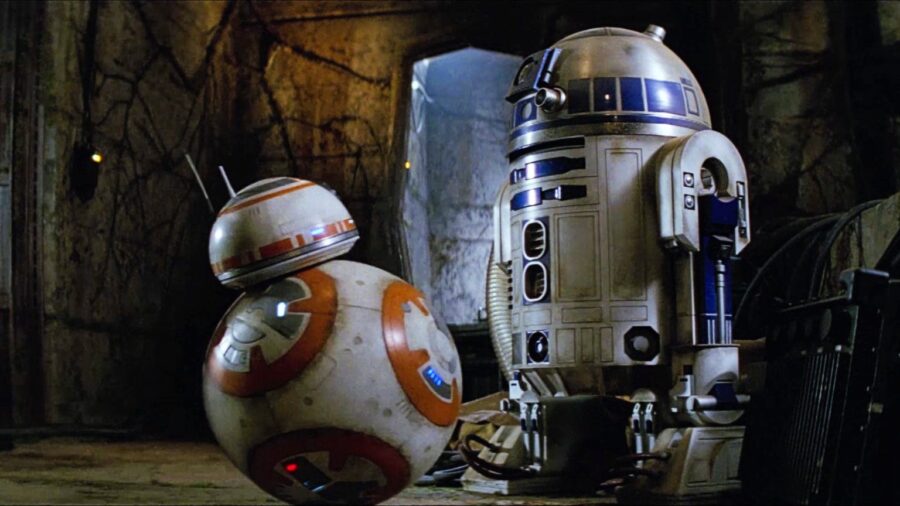
In recent years, the franchise has been cautiously beginning to explore notions of moral ambiguity in The Last Jedi (to much fan outrage) and Andor (to critical acclaim). But it is hard to imagine that Disney will ever allow Lucasfilm to really delve into such a controversial idea; the company is already dealing with financial losses and confronting one of the most sensitive subjects in American history will likely not help things.
This is the world that Star Wars has created, and somebody other than L3-37 needs to speak for the droids someday.









